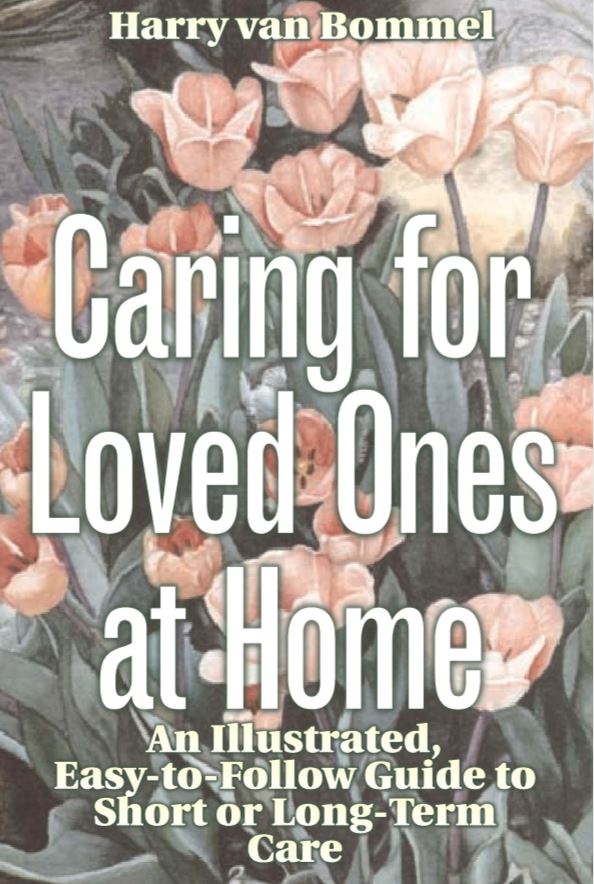Whenever I ask people if they would like to be a patient they all answer no! No one likes to be sick. Few of us enjoy having others take care of us except to be spoiled for a few days when we have the flu. Long-term care can be quite frustrating for people and for those who care for them. Most of us would prefer to give the care rather than receive it. We have been brought up in the last 50 years to believe that allowing people to care for you is a burden to them. For those of us who have cared for others for quite some time, we recognize that often it is an honour and a pleasure to care for someone we love. There are times of great love, intimacy and laughter. There are also times of frustration and exhaustion. Often the difficulties do not come from taking care of someone else but because we forget to take care of ourselves or we do not ask for enough support from family, friends and community services. Some of the frustration comes from trying to understand and benefit from the complex health care system where we live.
The people who spend most of their time caring for someone they love need physical, emotional, spiritual and information supports just like the person who is getting home care. We often do not know how to ask for these supports and many people do not know how to offer them so the needed support is not there. One of the last sections of this book, Creating Your Own Support Team, is one way to change that. Modify the list of suggestions to meet your own needs. People generally love to help if they know it is only for a few hours every week or two. They will cut lawns, get groceries, walk your dog, pick up people at the airport, or prepare a frozen meal you can use whenever you want. You only have to give people an excuse to help and most are more than happy to do it. They want a specific task or duty to perform to show they care and respect the person who is getting home care.
There are a few other things you can do to make home care more successful:
Understand that your lives have changed for a while and that you cannot do everything you used to, or when you used to do it. Recognize as well (and this is just as important) that you will be doing new things that will enrich your life, make a real difference in the life of your loved one and will help you remember what is truly important in life. This is a time of both giving and receiving. This is also a time that will make you stronger if you get the supports and information you need.
Understand that both the person who is receiving care at home and those giving the care must work to help each other. In other words, if your mother is at home sick and the rest of the family is helping, you must all share in supporting each other. Your mother must recognize that she is still your mother and has gifts to offer you even though she is sick. She still needs to be treated as a mother rather than a sick person. She still needs to offer her motherly advice and wisdom. She can still participate in her own care, to her best ability, while also doing things to provide support to her family. As much as she can, she should continue to offer her gifts of favourite recipes, her needlework or letter writing, or her enjoyment of singing or playing an instrument.
She must not expect service that one gets from servants just as you cannot expect to provide that kind of service most of the time. While she is being the most helpful person she can be, you need to recognize that you would not want to change places with her and that she is going through a difficult time. Working together and communicating honestly will provide each of you the support you need. If you do not have that kind of relationship, you may need some help to improve the relationship you have. No one is a servant and no one is the master. You are all in this situation together doing the best you can with the knowledge and skills you have right now.
You will need to plan ahead to meet the changes in your lives. If you feel overwhelmed with everything that is happening, ask for help from your home care co-coordinator, family doctor, or friends. Ask them to help you schedule your activities differently so that there is time to rest, relax and think rather than rush all the time. Other people have done this too and we can all learn from their experiences. Perhaps there are self-help support groups in your area to provide extra information and encouragement.
Both the person who is ill and their family members may need more knowledge and skills to give the necessary support to each other. Learn as much as you can from this book and others listed in the references. The best people to learn from are the visiting home nurses so stay in the room with them as they nurse your loved one. Ask questions and offer to help so that you can practice the skills you need.
Try to keep as many of your typical contacts as you can. Neither the person nor the family members should isolate themselves completely from those who love them. Your other family, friends and neighbours can provide you with the kind of emotional and spiritual support we all need. Again, they may not know how to offer, so ask them over for tea or take some time away from home to meet them somewhere else for a little break. If you do not know anyone who will stay with your loved one at home while you go out, ask your home care coordinator, visiting home nurse or family doctor for some volunteer services in your community that may be able to help. There are also some organizations that provide what is called ‘respite care’ to family members to give them some free time. Ideally the person who is ill should not have to leave home to give their family members a rest. It is better if the family is given an opportunity to have a weekend away or some similar time off.
Understand that people’s personalities do not change very much because of illness. If someone was very happy and family-oriented before their illness, they will probably remain that way now. If someone was quite unhappy and grouchy before, they will not suddenly become happy and enjoy everyone’s company. This is just as true for family members caring for someone. The more we understand this basic truth, the less frustration we will have when people do not suddenly change to suit our needs. When there are significant changes in personality one should check about possible side effects from medication or a physical cause (e.g., dementia, brain cancer).
Each of us deals with stress differently. This is just as true with the stress of an illness or some of the stress of caring for someone else. The more you recognize how someone has dealt with stress in the past the more you can help them deal positively with this stress. Whatever people have done in the past, they will probably do again. Listening to them and helping them to sort out other possible ways of dealing with stress will help you both.
Few people enjoy hearing about how someone else has had the “exact same illness or condition and you should have seen how bad they had it!” These kinds of comparisons are not very helpful. If you have ever had your wisdom teeth removed or have been pregnant you will instantly know what we mean. Avoid comparing people’s conditions and how well they are dealing with it compared to other people’s experiences.
When you have time away from caregiving or receiving care, you may want to join others to find ways to support those in the community who have long-term care commitments. You may also begin to discuss with community leaders, employers and politicians how we can adapt our systems to provide the economic stability and personal support that people need who are caring for others full time in their home. This group of mostly women is saving our country billions of dollars in institutional care but we often isolate them, force them to quit jobs they enjoy and provide them with little physical, emotional, spiritual and information support to care for loved ones at home. You only have to imagine what it is like to care for someone with dementia at home, or someone with physical disabilities requiring round-the-clock care, to understand how important it is that we all support each other in caring for loved ones at home. What we do for maternity leave we should do for people providing short and longer-term home care.
From personal experience I know that home care has many positive moments and some frustrating and angry ones. This is typical. You have all had jobs, relationships and vacations that included positive and negative experiences. That is reality for most of us. Home care is no different.
The greatest predictor of how much you get out of this time together is whether or not you believe home care is a wonderful opportunity for everyone to slow down their lives and share in a common, life-defining experience. If you believe that, you will be fine.
When you experience difficulties, talk to your home care coordinator, visiting home nurse, family doctor and other family members and friends to get their help.
Caring For Loved Ones – Free eBook – click here.
Click here for Harry’s previous article on Home Care.























